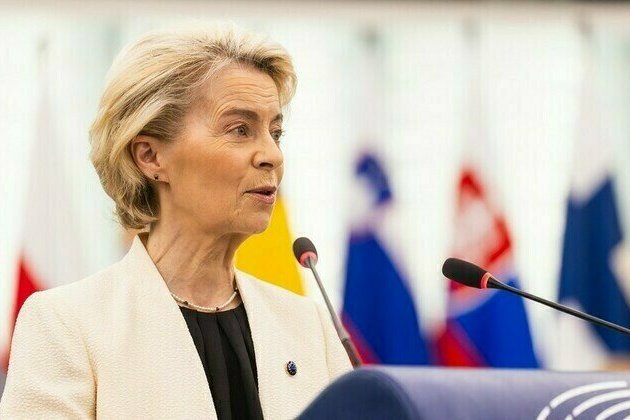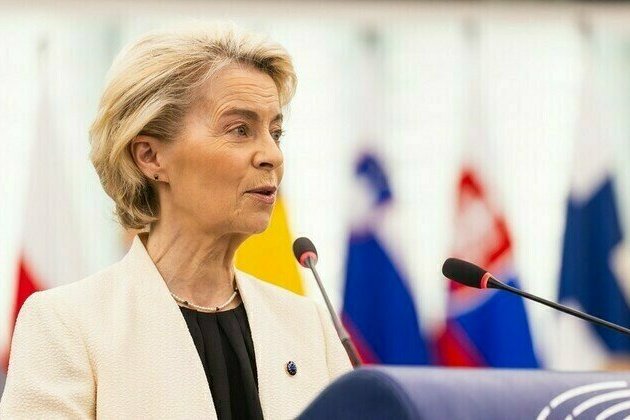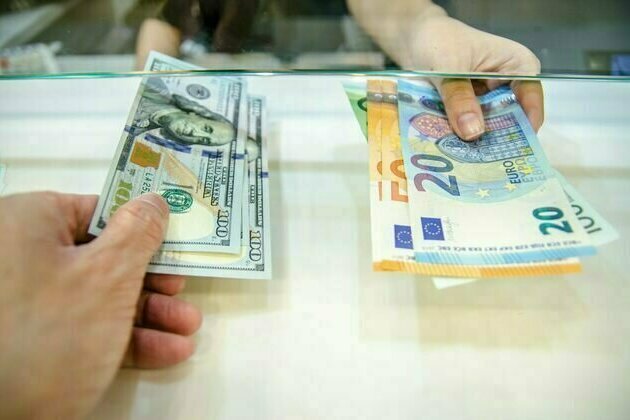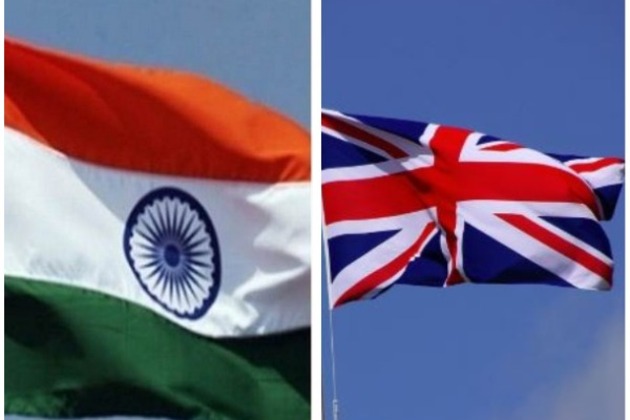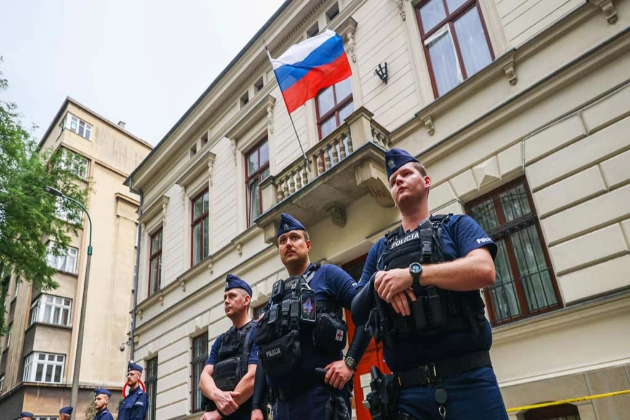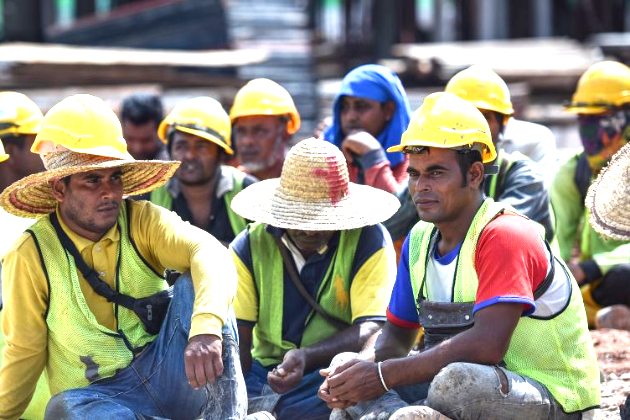Nordic, Baltic nations plan offline card payments amid rising risks
Robert Besser
12 May 2025, 11:04 GMT+10

- In response to rising geopolitical risks, Finland, Sweden, Norway, Denmark, and Estonia are preparing to roll out offline card payment systems to ensure transactions can continue if internet connections are disrupted, a senior Finnish central bank official said this week
- Bank of Finland board member Tuomas Valimaki cited recent damage to critical undersea infrastructure in the Baltic Sea and fears of sabotage as driving factors behind the initiative
- Western intelligence agencies have accused Russia of targeting such infrastructure, a claim the Kremlin denies
HELSINKI, Finland: In response to rising geopolitical risks, Finland, Sweden, Norway, Denmark, and Estonia are preparing to roll out offline card payment systems to ensure transactions can continue if internet connections are disrupted, a senior Finnish central bank official said this week.
Bank of Finland board member Tuomas Valimaki cited recent damage to critical undersea infrastructure in the Baltic Sea and fears of sabotage as driving factors behind the initiative. Western intelligence agencies have accused Russia of targeting such infrastructure, a claim the Kremlin denies.
"The likelihood of major disruptions has increased because the geopolitical situation has changed worldwide," Valimaki told Reuters, referencing Russia's invasion of Ukraine. "There is a war in Europe, and around that war, there is all sorts of hybrid influence and harassment, which may involve disrupting or cutting connections."
Valimaki noted that card payments, vital for everyday transactions, could be a primary target. In Finland, where just 10 percent of people primarily use cash, dependence on card payments is particularly high.
To mitigate this risk, the Nordic and Baltic countries are exploring solutions that enable offline payments, where terminals encrypt and store transaction data until internet service is restored. Norway and Denmark have already launched such systems, while Sweden's central bank aims to introduce offline card payments for essential purchases by July 1, 2026.
Finland is also planning to roll out offline payment capabilities next year and develop a national instant payment system to reduce reliance on U.S.-based Visa and Mastercard infrastructure.
"We may feel like we have options, to pay with debit or credit or with Apple Pay, but all of those function via the Visa and Mastercard infrastructure," Valimaki said, urging the diversification of payment networks.
Last year, Nordic bank Nordea experienced a prolonged denial-of-service attack, underlining the vulnerability of digital financial systems. To further enhance financial security, Finland is also establishing a national system of reserve bank accounts to guarantee access to savings even if a commercial bank fails.
As part of broader financial resilience planning, NATO's Christian-Marc Lilflander called for finance ministers to take a more active role in security discussions to address potential threats to the financial services sector.
The European Central Bank is separately working on a digital euro for instant payments, but Valimaki noted it would take years to implement.
 Share
Share
 Tweet
Tweet
 Share
Share
 Flip
Flip
 Email
Email
Watch latest videos
Subscribe and Follow
Get a daily dose of Germany Sun news through our daily email, its complimentary and keeps you fully up to date with world and business news as well.
News RELEASES
Publish news of your business, community or sports group, personnel appointments, major event and more by submitting a news release to Germany Sun.
More InformationEurope Business
SectionNordic, Baltic nations plan offline card payments amid rising risks
HELSINKI, Finland: In response to rising geopolitical risks, Finland, Sweden, Norway, Denmark, and Estonia are preparing to roll out...
Court rules on von der Leyens missing Covid vaccine texts
The European Commission acted improperly by refusing to release communications with Pfizer to the media, the ruling states The European...
Court rules on von der Leyens secret Covid vaccine deal messages
The European Commission acted improperly by refusing to release communications with Pfizer to the media, the ruling states The European...
Essential Foods Become Costlier for Bulgarians Amid Inflation
The cost of essential foods in Bulgaria has risen by nearly 11% over the past year, as reported by the Commission on Commodity Exchanges...
Could the euro replace the dollar as global reserve currency? It's not getting any less likely
A global reserve currency is one that is extensively held by foreign Central Banks. Since the 1944 Bretton Woods agreement this position...
After India UK FTA, focus must be on local content to prevent entry of Chinese goods: Report
New Delhi [India], May 13 (ANI): As India and the United Kingdom successfully conclude their Free Trade Agreement (FTA), it has to...
Europe
SectionIreland lags in patient care, access to new cancer drugs
DUBLIN, Ireland: Ireland has the lowest availability rate for new cancer medicines in Western Europe, with patients waiting nearly...
Poland tells Russia to close consulate in Krakow over fire allegations
WARSAW, Poland: Poland has ordered Russia to shut down its consulate in Krakow following allegations that Moscow was involved in a...
Crowds watch Celtic fire ritual welcoming summer in Ireland
DUBLIN, Ireland: Hundreds of spectators gathered at the Hill of Uisneach over the weekend for a Celtic fire procession, a centuries-old...
Ireland forms Oireachtas Committee to study AI’s impact
DUBLIN, Ireland: With artificial intelligence rapidly reshaping industries worldwide, Ireland has established a new Oireachtas committee...
Ireland sets hottest April record at 25.9°C
DUBLIN, Ireland: Ireland recorded its hottest-ever April day as temperatures hit 25.9 degrees Celsius, according to the EU's Copernicus...
Foreign workers drive post-pandemic growth in eurozone: ECB
FRANKFURT, Germany: Foreign workers have emerged as a critical force behind the euro zone's economic growth since the pandemic, offsetting...

